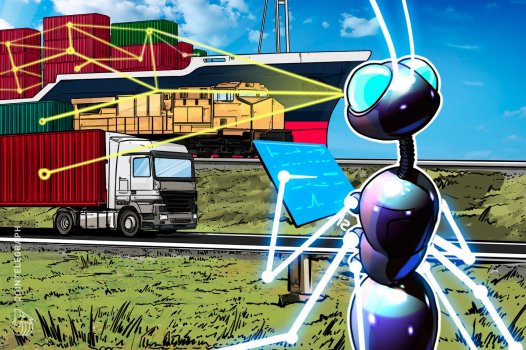Since time immemorial, technological innovations have shaped the structure of commerce and trade. The discovery of electricity encouraged mass production and the advent of steam engines ushered in an era of mechanized production.
From information to communication, technology has been used everywhere to make life easier. For this reason, blockchain technology has been tapped by many as the next big thing, considering its use cases which cut across numerous industry verticals.
Mainly used in keeping records of transactions, blockchain technology is a type of distributed ledger technology.
Blockchain makes a difference
According to Statista, blockchain makes keeping data records easier, more transparent, and even more secure. Owing mostly to its resistance to alteration, blockchain offers time-based information on transactions, whether they are between private individuals, corporate entities, supplier networks or even an international supply chain.
It is also a common notion that blockchain is only a technology for Bitcoin (BTC). However, that assumption could not be more wrong. While the technology emerged alongside Bitcoin in 2008, however, today, its use cases have evolved far beyond cryptocurrencies. From finance to e-commerce, food safety, voting exercises and supply-chain management, its applications cut across virtually all sectors of the global economy, including areas directly or indirectly linked to international trade.
The value chain attached to international trade is a notably complex one. While its transactions involve multiple actors, its other aspects like trade financing, customs administration, transportation and logistics all benefit from the adoption of blockchain technology.
According to Statista, cross-border payments and settlements account for the largest use cases of blockchain technology, especially considering how there have been numerous past efforts to digitize trade transactions.
As of today, the potential of blockchain to enhance the efficiency of trade processes is already being explored. For instance, the blockchain project Open Food Chain is working to improve food security via its Komodo Smart Chain.
Kadan Stadelmann, chief technology officer of Komodo — technology provider and open source workshop — told Cointelegraph:
Blockchain can streamline the complex documentation processes that are prevalent in international trade. Zen Young, CEO of noncustodial web authentication infrastructure Web3Auth, told Cointelegraph:
Continue reading: https://cointelegraph.com/news/how-blockchain-technology-can-revolutionize-international-trade
From information to communication, technology has been used everywhere to make life easier. For this reason, blockchain technology has been tapped by many as the next big thing, considering its use cases which cut across numerous industry verticals.
Mainly used in keeping records of transactions, blockchain technology is a type of distributed ledger technology.
Blockchain makes a difference
According to Statista, blockchain makes keeping data records easier, more transparent, and even more secure. Owing mostly to its resistance to alteration, blockchain offers time-based information on transactions, whether they are between private individuals, corporate entities, supplier networks or even an international supply chain.
It is also a common notion that blockchain is only a technology for Bitcoin (BTC). However, that assumption could not be more wrong. While the technology emerged alongside Bitcoin in 2008, however, today, its use cases have evolved far beyond cryptocurrencies. From finance to e-commerce, food safety, voting exercises and supply-chain management, its applications cut across virtually all sectors of the global economy, including areas directly or indirectly linked to international trade.
The value chain attached to international trade is a notably complex one. While its transactions involve multiple actors, its other aspects like trade financing, customs administration, transportation and logistics all benefit from the adoption of blockchain technology.
According to Statista, cross-border payments and settlements account for the largest use cases of blockchain technology, especially considering how there have been numerous past efforts to digitize trade transactions.
As of today, the potential of blockchain to enhance the efficiency of trade processes is already being explored. For instance, the blockchain project Open Food Chain is working to improve food security via its Komodo Smart Chain.
Kadan Stadelmann, chief technology officer of Komodo — technology provider and open source workshop — told Cointelegraph:
Stadelmann explained that the technology ensures that foods can be tracked from their origin (i.e., a farm in another country) to the consumer’s local supermarket. He said this can help improve food security around the globe by tackling issues like food contamination outbreaks as 600 million — almost 1 in 10 people in the world — fall ill after eating contaminated food and 420,000 die every year, according to the WHO.“Blockchain’s biggest advantage is immutability, meaning data can’t be deleted or edited after it’s on the ledger. For international trade, this provides an opportunity for more transparency across several major industries.”
Blockchain can streamline the complex documentation processes that are prevalent in international trade. Zen Young, CEO of noncustodial web authentication infrastructure Web3Auth, told Cointelegraph:
Continue reading: https://cointelegraph.com/news/how-blockchain-technology-can-revolutionize-international-trade

